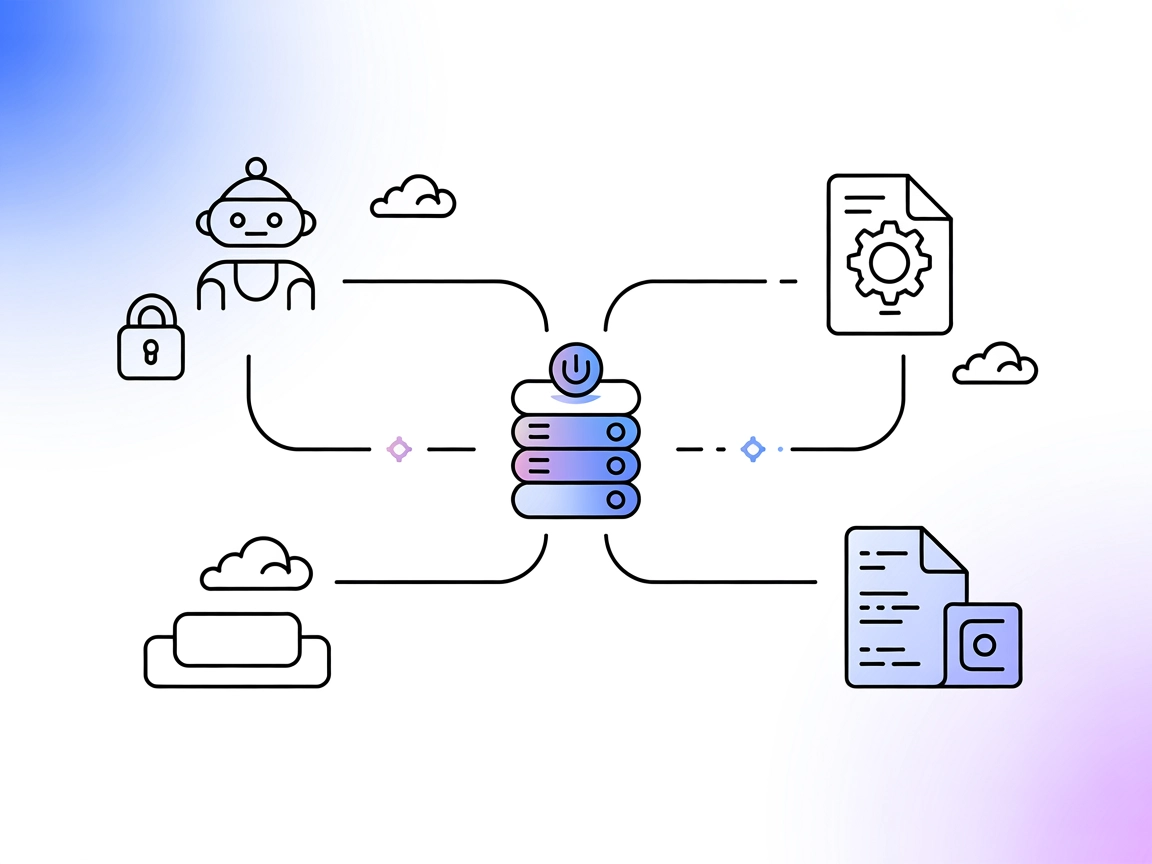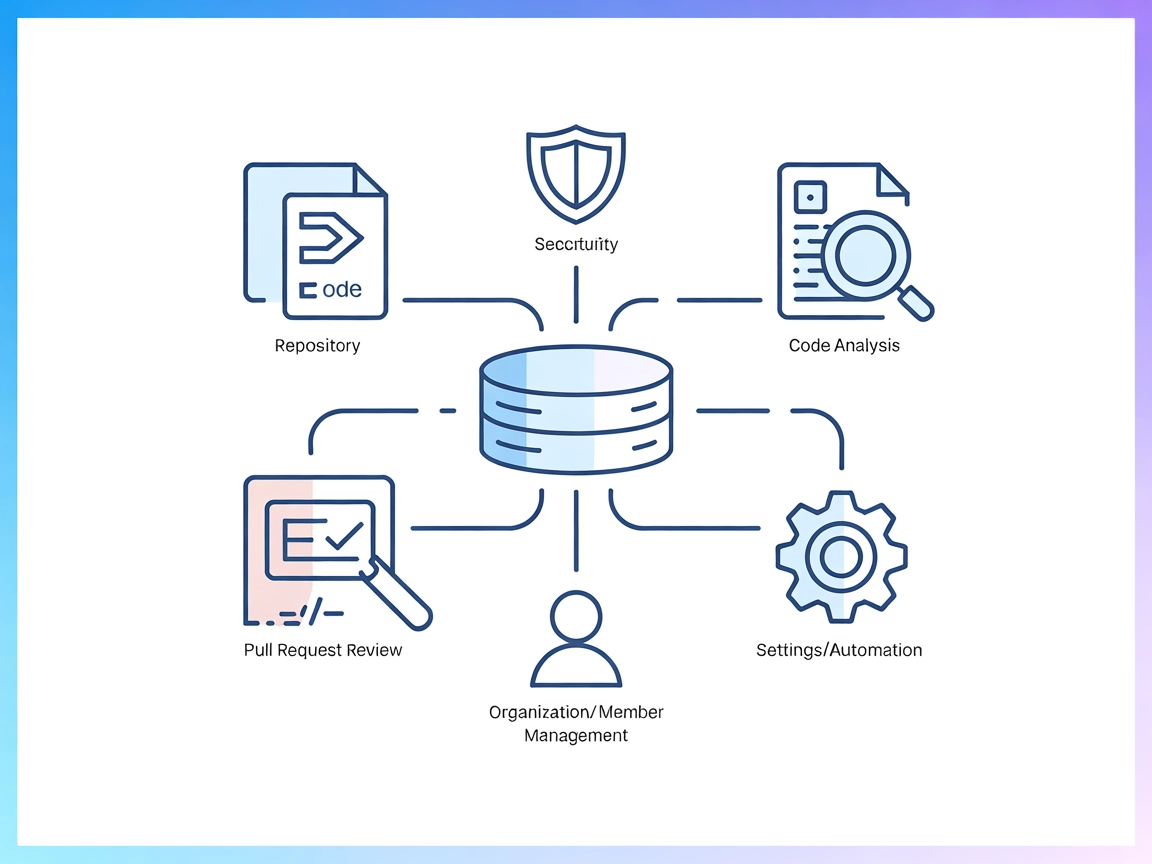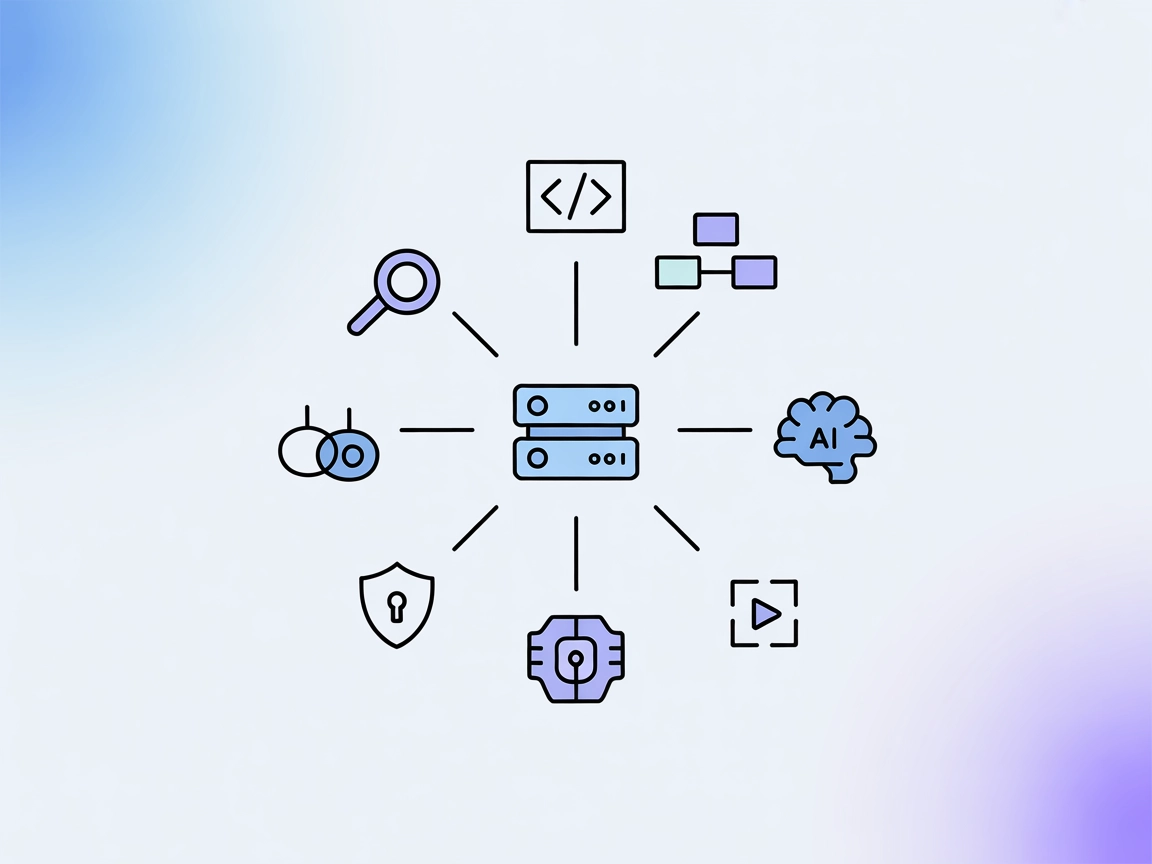
Coda MCP Server Integration
The Coda MCP Server provides a standardized way for AI assistants to interact with Coda’s platform, enabling document queries, workflow automation, and unified ...

Connect your AI workflows to Codacy for automated code quality, security, and repository management with the Codacy MCP Server.
FlowHunt provides an additional security layer between your internal systems and AI tools, giving you granular control over which tools are accessible from your MCP servers. MCP servers hosted in our infrastructure can be seamlessly integrated with FlowHunt's chatbot as well as popular AI platforms like ChatGPT, Claude, and various AI editors.
The Codacy MCP (Model Context Protocol) Server acts as a bridge between AI assistants and the Codacy platform, enabling enhanced programmatic access to code quality, security, coverage, and repository management data. By exposing Codacy’s API and content as structured tools, resources, and context, this server allows AI-powered workflows to automate code analysis, manage repositories, analyze pull requests, and enforce code standards. Developers can use the Codacy MCP Server to query repositories, analyze files, manage organizational settings, and perform security checks, streamlining the software development lifecycle and improving code health by integrating Codacy’s capabilities directly into AI-driven or automated development environments.
No prompt templates are mentioned in the repository or documentation.
No explicit list of MCP resources is provided in the repository or documentation.
The following tools are described as available via the Codacy MCP Server:
mcpServers object:"mcpServers": {
"codacy": {
"command": "npx",
"args": ["@codacy/mcp-server@latest"]
}
}
"mcpServers": {
"codacy": {
"command": "npx",
"args": ["@codacy/mcp-server@latest"],
"env": {
"CODACY_API_TOKEN": "your_api_token_here"
},
"inputs": {}
}
}
"mcpServers": {
"codacy": {
"command": "npx",
"args": ["@codacy/mcp-server@latest"]
}
}
(Use the env property as shown in Windsurf example.)
"mcpServers": {
"codacy": {
"command": "npx",
"args": ["@codacy/mcp-server@latest"]
}
}
(See Windsurf example.)
"mcpServers": {
"codacy": {
"command": "npx",
"args": ["@codacy/mcp-server@latest"]
}
}
(Use the env property as above.)
Using MCP in FlowHunt
To integrate MCP servers into your FlowHunt workflow, start by adding the MCP component to your flow and connecting it to your AI agent:

Click on the MCP component to open the configuration panel. In the system MCP configuration section, insert your MCP server details using this JSON format:
{
"codacy": {
"transport": "streamable_http",
"url": "https://yourmcpserver.example/pathtothemcp/url"
}
}
Once configured, the AI agent is now able to use this MCP as a tool with access to all its functions and capabilities. Remember to change “codacy” to whatever the actual name of your MCP server is and replace the URL with your own MCP server URL.
| Section | Availability | Details/Notes |
|---|---|---|
| Overview | ✅ | Full description of Codacy MCP Server provided |
| List of Prompts | ⛔ | No prompt templates found |
| List of Resources | ⛔ | No explicit MCP resources listed |
| List of Tools | ✅ | Tools enumerated in README |
| Securing API Keys | ✅ | Example JSON with env provided in documentation |
| Sampling Support (less important in evaluation) | ⛔ | Not mentioned |
Based on the two tables, the Codacy MCP Server is well-documented for tools and setup, with good security practices, but lacks explicit prompt templates, resources, and sampling/roots documentation. I would rate this MCP a 6/10 for completeness and developer friendliness.
| Has a LICENSE | ✅ |
|---|---|
| Has at least one tool | ✅ |
| Number of Forks | 3 |
| Number of Stars | 0 |
The Codacy MCP Server connects AI assistants to the Codacy platform, providing programmatic access to code quality, security, coverage, and repository management features. It enables automated code analysis, pull request reviews, security auditing, and repository management within AI workflows.
It offers tools for repository setup and management, organization and member management, code quality analysis, file management, security analysis, pull request reviews, tool and pattern management, and CLI-driven code analysis.
Always store your API tokens in environment variables using the 'env' property in your configuration. This prevents accidental exposure of credentials in code or logs.
Use cases include automated code quality checks in CI/CD pipelines, security auditing for codebases, managing multiple repositories and organizations, context-aware pull request reviews, and dynamic enforcement of code quality tools and patterns.
Add the MCP component to your flow in FlowHunt, open its configuration, and insert your Codacy MCP server details as shown in the documentation. This enables your AI agent to access all Codacy functions programmatically.
Streamline your code analysis, security audits, and repository management by integrating Codacy’s capabilities into your AI-driven workflows.

The Coda MCP Server provides a standardized way for AI assistants to interact with Coda’s platform, enabling document queries, workflow automation, and unified ...

The CodeLogic MCP Server connects FlowHunt and AI programming assistants to CodeLogic’s detailed software dependency data, enabling advanced code analysis, visu...

The Code Sandbox MCP Server provides a secure, containerized environment for executing code, enabling AI assistants and developer tools to run, test, and manage...
Cookie Consent
We use cookies to enhance your browsing experience and analyze our traffic. See our privacy policy.